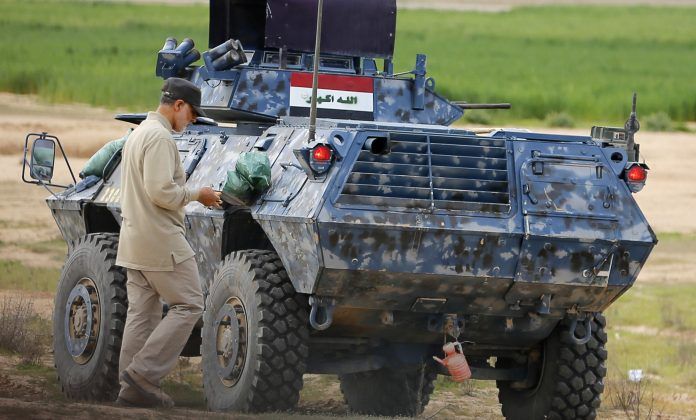WASHINGTON, Jan 3 (Reuters) – Qassem Soleimani, Tehran’s most prominent military commander who was killed in a U.S. strike, was planning imminent attacks on U.S. diplomats and troops in Iraq, Lebanon, Syria and elsewhere in the Middle East, a senior U.S. official said on Friday.
A U.S. strike in Baghdad on Friday killed Soleimani, a 62-year-old general who headed the overseas arm of the Revolutionary Guards and was seen as the second most powerful figure in Iran after Supreme Leader Ayatollah Ali Khamenei.
Speaking to a small group of reporters on condition of anonymity, U.S. officials cast their decision to kill Soleimani as an act of self-defense.
[aesop_image img=”https://kayhanlife.com/wp-content/uploads/2020/01/2020-01-03T000000Z_542951019_MT1ABCPR714625009_RTRMADP_3_ABACA-PRESS.jpg” panorama=”off” credit=”General Qassim Suleimani (C) the Quds Force commander of the Iranian Revolutionary Guard Corps and Abu Mahdi al-Muhandis (R), military commander who headed the Popular Mobilisation Committee (Al-Hashd Al-Shaabi), planing a military operations in Iraq, Jun.REUTERS./” align=”center” lightbox=”off” captionsrc=”custom” captionposition=”left” revealfx=”off” overlay_revealfx=”off”]
“Soleimani was planning imminent attacks against American diplomats and armed forces members in Iraq, Lebanon, Syria, and in the region,” the senior official said on condition of anonymity. “This was an action taken in self defense, and the United States has the inherent right to defend itself, if it is faced with an attack.”
While acknowledging the possibility of Iranian retaliation – which Tehran has promised – senior U.S. officials argued that Soleimani’s killing deprived Iran of one of its most ingenious commanders and could deter future attacks.
“We cannot promise that we have broken the circle of violence,” said a second official. “What I can say from my experience with Qassem Soleimani is it is less likely that we will see this now than it was before and, if we do see an increase in violence, it probably will not be as devilishly ingenious.”
(Reporting by Arshad Mohammed, David Brunnstrom and Daphne Psaledakis Editing by Chris Reese and Leslie Adler)


